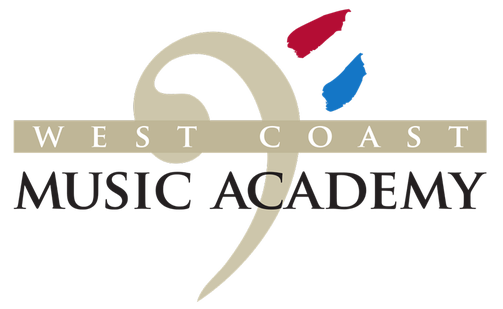Piano practice is a necessary part of becoming a better musician. Surely you’ve already heard all the adages about how practice makes perfect, but “perfect” is a pretty lofty goal to think about. It takes an awful lot of practice to become “perfect,” but it takes very little practice to become “better.”
Getting better should be the goal of your piano practice, and at West Coast Music Academy, we have some tips on how to get the most out of your piano practice time.
Consistency is Key
One of the best things you can do to improve your piano practice is to find a way to do it every day.
You don’t have to suddenly make the piano practice your full-time job like you’re becoming a professional musician or anything like that, but just taking 20 minutes a day will make a huge difference.
You’ll see much better results doing a little bit of work every day, compared to if you do longer sessions, less often. It’s not like cramming for a test - you can’t just cram in an hour of piano practice before your piano lessons in Santa Clarita and expect to improve at the rate you want.
Establish a Warm-Up Routine for Your Piano Practice
Just like exercise and sports, you need to make sure you warm up before you practice. Not only does a warm-up routine of scales and short exercises help you limber up your fingers, but it also gets you mentally ready for piano practice.
Don’t Always Start At the Beginning
It’s tempting to want to start at the beginning of each piece and play through your mistakes so that you can “finish” the piece and move on. That’s usually not efficient piano practice, though, and could be creating more problems, if you’re repeating mistakes without addressing them.
If you find yourself running into trouble at measure 20, for instance, don’t keep starting from measure 1 and hoping it doesn’t happen again. Start from a closer measure like 18 or 19 and do some focused piano practice on the sections that are tripping you up.
Of course, it is important to practice the full piece, but in your piano practice, it’s also important to identify trouble spots and give them extra attention. Usually practicing and overcoming those tough spots is the best way to grow as a player, as those spots are helping you identify your weaknesses and address them directly. The next time you see a similar passage, you’ll be amazed at how much easier it is.
Slow Down
One of the most important and timeless piano practice tips is to slow down. You should rarely be practicing music at full tempo until you are confident enough to play it consistently at a slower tempo.
Practicing at a slow tempo allows you to fully understand what you’re doing, where your fingers are supposed to be, and how everything should sound together. It’s a great way to make sure your mechanics are sound and you’re not creating bad muscle memory habits.
Don’t simply play it through slowly once and then try to pop back up to full speed, either. For effective piano practice, it’s best to become extremely familiar with the piece you’re practicing at a reduced tempo, making sure you can play through accurately and comfortably multiple times, then gradually increase the tempo, becoming fully acclimated to each increased tempo before eventually moving up to the intended tempo.
This brings us to the next tip:
Use a Metronome
Even the most seasoned professional musicians can drag or rush their performance. Tempo control is one of the most tricky things to do, especially during piano practice where you are usually setting your tempo.
It’s very common to drag the tempo when you’re unsure of yourself or push the tempo when you’re nervous. Having a metronome on hand is a great way to make sure you’re keeping your tempo consistent during your piano practice. This used to mean having to go out and buy a physical metronome, but now it’s easy enough to find one as an app on your phone!
When You Can’t Play, Listen
Having a recording of the piece you’re playing will help you when it comes time to start your piano practice. One of the most important things you can do during piano practice is listening to yourself. It is important to remain accountable to your play and listen for anything that isn’t quite right.
Knowing how the recording is supposed to sound is the best way to make sure your play is matching up with it. So you can improve your piano practice even when you’re not actively practicing!
Learn to Practice in your Piano Lessons
Piano practice doesn’t just help you refine your skills - practicing, itself is a skill. Learning to practice efficiently and effectively is something we can help teach with our piano lessons in Santa Clarita and Granada Hills-Porter Ranch, California. Contact us at West Coast Music Academy to start your piano lessons- and more effective piano practice - today!
